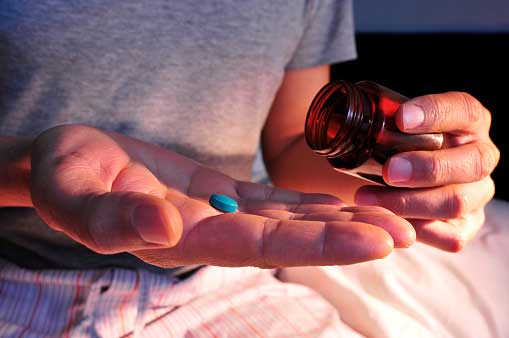While a very common condition, it largely remains undiscussed due to the shame attached to it. Men especially find it emasculating to talk about Erectile Issues with their partners, spouses, and even health care providers.
Regardless, problems with penile erection are not just restricted to sexual satisfaction but are also sometimes indicators of poor cardiovascular health, diabetes, high cholesterol and blood pressure, and psychological distress.
Addictive traits such as excessive consumption of alcohol, smoking, and substance abuse can also result in the inability to obtain a proper erection.
Causes of Erectile Dysfunction
Before engaging in sexual activity, nerve signals sent from the brain boost the blood flow to the penis. As a result, the penile arteries, tissues, and muscles relax. The blood is trapped inside the penis, further increasing the blood pressure and helping it stay erect.
Erectile Dysfunction occurs when the penis and the nervous system fail to perform the above activity. Multiple reasons can trigger this:
- Insufficient blood flow to the penis
- Issues within the nervous system or reproductive system
- Inability to trap the blood inside the penis
- Trauma inside the pelvic region
Risk Factors for Erectile Dysfunction
Various underlying health issues can cause erectile dysfunction in men, including:
Physical Causes
- Type 2 diabetes
- Prostate problems
- High blood pressure (hypertension)
- Vascular disease
- High blood cholesterol
- Neurogenic disorders
Psychological Causes
- Insomnia
- Anxiety
- Depression
Addictive Behaviors
- Drugs
- Alcohol abuse
- Smoking
Treatment for Erectile Dysfunction
Lifestyle Changes
The treatment for Erectile Dysfunction varies as per the diagnosis. More often than not, lifestyle changes such as regular exercise, switching to a healthier diet, and cutting down on alcohol and tobacco are sufficient to cure erectile issues.
Sometimes, your doctor may even recommend counseling or therapy sessions with a mental health expert to reduce any psychological distress you might be experiencing.
Oral Drugs
Your urologist or physician will always select non-invasive procedures first. Phosphodiesterase type 5 (PDE5) inhibitors are medications used to treat Erectile Dysfunction.
These primarily include oral drugs such as Viagra, Levitra, Cialis, and Stendra. These medications are usually taken a few hours before engaging in sexual intercourse.
Some side effects include headache, facial flushing, stuffy nose, and indigestion. Mixing these pills with alcohol is generally not advisable.
Testosterone Therapy
Low testosterone levels can prevent men from having an erection firm enough to achieve penetration. In such a case, your doctor might recommend you to undergo testosterone therapy.
Increasing your testosterone levels to a healthier count can improve your erectile function significantly.
Invasive Procedures
The surgical intervention used to treat Erectile Dysfunction includes any of the following methods:
- Installing penile implants that help receive an erection
- Vascular Reconstructive Surgery to rebuild the arteries within the penis
Vacuum Erection Device
A Vacuum Erection Device pumps blood to the penis. Once the penis is firm and erect, an elastic ring is slid down to the other end using lubricant. This process keeps the erection for up to 30 minutes.
While there is significant discomfort around Erectile Dysfunction, men need to consult their primary caregivers if they experience issues with erection. There may be an underlying disease or a chronic illness causing this.
It is equally crucial to address any psychological or emotional distress you might be encountering.
To overcome your Erectile Dysfunction problems with ease and comfort, contact Stud RX by phone at 1-884-478-8379 or email at support@stud-rx.com. You can also reach out by using our online contact form.







